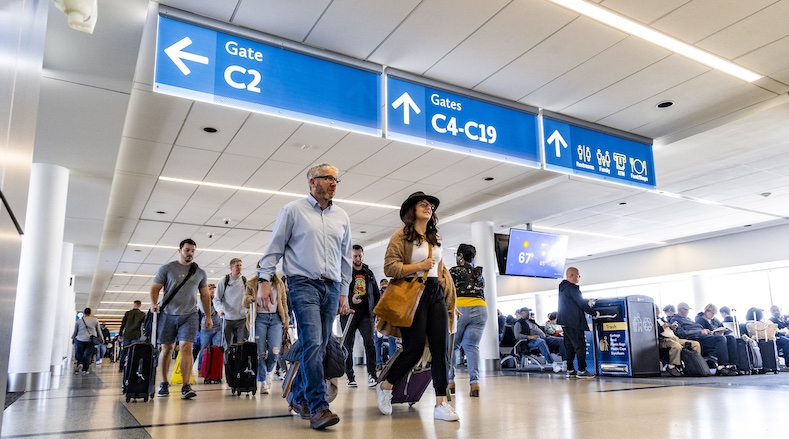The FAA’s Airport Improvement Program (AIP) is set to receive a substantial increase in grants, providing U.S. airports with the necessary funds to enhance and expand their air travel capacities. Following extensive deliberations, Senate and House transportation leaders have reached a consensus on a comprehensive five-year Federal Aviation Administration authorization featuring a significant rise in funding for airport construction grants.
The bipartisan agreement, valued at $105 billion, was revealed by key figures, including Senate Commerce Committee Chair Maria Cantwell and House Transportation and Infrastructure Committee Chairman Sam Graves.
At the heart of the agreement is the $19.4 billion allocation for FAA’s Airport Improvement Program (AIP), aimed at supporting crucial infrastructure projects such as runway and taxiway upgrades. This boost in funding is heralded as essential by industry experts, signaling a commitment to modernizing American airport infrastructure. The bill outlines specific funding figures, including $3.35 billion for fiscal year 2024 and $4 billion annually from 2025 to 2028, representing a 19.4% increase over previous levels.
FAA (Credits: WCIA)
In addition to bolstering funding, the legislative package introduces policy changes to streamline airport operations and support innovation in aviation. One notable provision is the requirement for the FAA to propose a rule facilitating a “performance-based regulatory pathway” for drones, which could enhance efficiency in activities like surveying and inspections.
Moreover, the bill includes provisions to revamp AIP apportionments, establish an airport resilience program, and authorize grants for projects utilizing innovative financing and integrated project delivery.
The agreement extends federal aviation taxes and expenditure authority for the Airport and Airway Trust Fund through September 30, 2028, ensuring continued financial support for critical aviation infrastructure. The bill’s journey forward involves floor votes in both the House and Senate, with the FAA currently operating under short-term extensions set to expire soon.
Despite some contentious issues, such as the debate over additional flights at Ronald Reagan International Airport, negotiators have navigated through these challenges to forge a comprehensive agreement poised to advance aviation infrastructure and regulatory frameworks.
The bipartisan consensus on FAA authorization reflects a concerted effort to provide robust support for the nation’s aviation system, recognizing the pivotal role airports play in facilitating safe and efficient air travel. With increased funding and policy reforms, the bill seeks to address key infrastructure needs, promote innovation, and ensure the long-term sustainability and competitiveness of the U.S. aviation sector.
